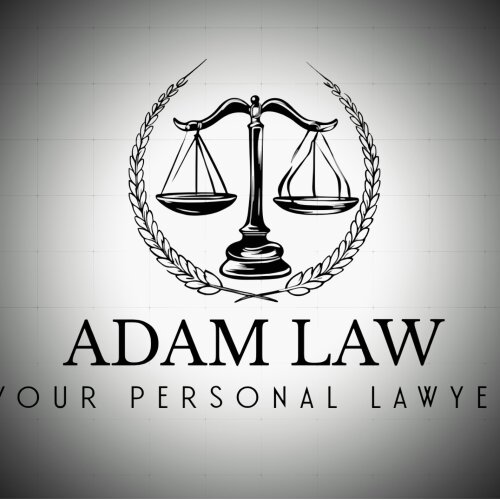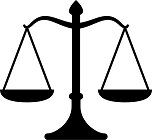
Best General Litigation Lawyers in Stockholm
Share your needs with us, get contacted by law firms.
Free. Takes 2 min.
List of the best lawyers in Stockholm, Sweden

About Litigation Law in Stockholm, Sweden
Litigation law in Stockholm, Sweden involves the process of taking legal action or resolving disputes through the courts. This can range from civil disputes, such as breaches of contract, to more complex commercial and criminal matters. The litigation process in Stockholm typically includes a pre-trial phase, trial phase, and possibly an appeal. The courts in Stockholm are part of the Swedish judicial system which is known for its efficiency and fairness. The litigation landscape is governed by a combination of statutory laws and precedents set by higher court rulings.
Why You May Need a Lawyer
There are various situations where you may require legal help in the field of litigation. Common scenarios include:
- Contract Disputes: When conflicts arise regarding the terms, enforcement, or breaches of contracts.
- Personal Injury Claims: When seeking compensation for injuries caused by another party's negligence or wrongdoing.
- Employment Disputes: Issues such as wrongful termination, discrimination, or unpaid wages.
- Family Law Disputes: Such as divorce, child custody, or alimony issues.
- Property Disputes: Conflicts surrounding property ownership, leases, or landlord-tenant disagreements.
- Debt Recovery: When seeking to recover owed funds from individuals or businesses.
- Commercial Disputes: Issues involving business transactions, partnerships, or shareholder matters.
Local Laws Overview
Litigation in Stockholm, Sweden is influenced by several key legal frameworks:
- The Swedish Code of Judicial Procedure (Rättgångsbalken): This code outlines the rules and procedures for civil and criminal litigation in Sweden.
- Domstolsverket (The Swedish National Courts Administration): This body administers the functioning of the courts in Sweden.
- The Arbitration Act: Governs the arbitration process, offering an alternative to court litigation.
- Specific Statutes: Various laws that cover specific areas such as employment, consumer protection, and personal injury.
It's essential to understand that Swedish litigation often emphasizes mediation and settlement before proceeding to a full court trial.
Frequently Asked Questions
1. What is the first step in filing a lawsuit in Stockholm?
The first step is typically to file a complaint or summons with the relevant court outlining the nature of your dispute and the relief you seek.
2. How long does litigation usually take in Stockholm?
The duration can vary widely depending on the complexity of the case, but simple cases can take a few months while more complicated matters can take several years.
3. Can I represent myself in court?
Yes, you can represent yourself, known as being a 'self-represented party'. However, it is often advantageous to have a lawyer who understands the legal system.
4. How are court fees determined?
Court fees are determined by the type of case and the court where the case is filed. Additional costs may include legal representation, expert witnesses, and the production of evidence.
5. What is mediation, and is it mandatory?
Mediation is a voluntary process where a neutral third party helps the disputing parties to reach an agreement. It is not mandatory, but courts may often encourage mediation to avoid prolonged litigation.
6. What if I cannot afford a lawyer?
If you cannot afford a lawyer, you may be eligible for free or subsidized legal aid depending on your financial situation and the nature of your case.
7. Are there deadlines for filing a lawsuit?
Yes, there are statutes of limitations which set deadlines for filing different types of lawsuits. These can vary based on the nature of the dispute.
8. Can a court decision be appealed?
Yes, decisions from lower courts can be appealed to higher courts if there are grounds to believe that a procedural or substantive error occurred.
9. What is a preliminary injunction?
A preliminary injunction is a temporary court order to take or refrain from specific actions until the final resolution of the case.
10. How do I enforce a court judgment?
Once a judgment is made, it can be enforced through the Swedish Enforcement Authority (Kronofogden), which can assist with actions such as seizing assets or garnishing wages.
Additional Resources
Here are some resources that can provide further help:
- Domstolsverket (The Swedish National Courts Administration): Responsible for the administration of the courts.
- The Swedish Bar Association: Offers a directory of authorized lawyers.
- Kronofogden (The Swedish Enforcement Authority): Assists with the enforcement of court judgments.
- Legal Aid Authorities: Provides information on eligibility and applying for legal aid.
- Ministry of Justice: Offers insights into legislative changes and ongoing legal reforms.
Next Steps
If you need legal assistance in litigation, consider the following steps:
- Identify Your Issue: Clearly define the nature of your dispute or legal issue.
- Consult a Lawyer: Seek advice from a qualified lawyer specializing in litigation to understand your options.
- Gather Evidence: Collect all relevant documents and evidence that may support your case.
- File a Complaint: If necessary, proceed with filing a complaint in the relevant court.
- Consider Mediation: Explore mediation as an alternative to resolve the dispute amicably.
- Prepare for Court: If mediation fails, prepare for court proceedings with the help of your lawyer.
Legal matters can be complex, and having professional guidance can significantly increase the chances of a favorable outcome.
Lawzana helps you find the best lawyers and law firms in Stockholm through a curated and pre-screened list of qualified legal professionals. Our platform offers rankings and detailed profiles of attorneys and law firms, allowing you to compare based on practice areas, including General Litigation, experience, and client feedback.
Each profile includes a description of the firm's areas of practice, client reviews, team members and partners, year of establishment, spoken languages, office locations, contact information, social media presence, and any published articles or resources. Most firms on our platform speak English and are experienced in both local and international legal matters.
Get a quote from top-rated law firms in Stockholm, Sweden — quickly, securely, and without unnecessary hassle.
Disclaimer:
The information provided on this page is for general informational purposes only and does not constitute legal advice. While we strive to ensure the accuracy and relevance of the content, legal information may change over time, and interpretations of the law can vary. You should always consult with a qualified legal professional for advice specific to your situation.
We disclaim all liability for actions taken or not taken based on the content of this page. If you believe any information is incorrect or outdated, please contact us, and we will review and update it where appropriate.
















